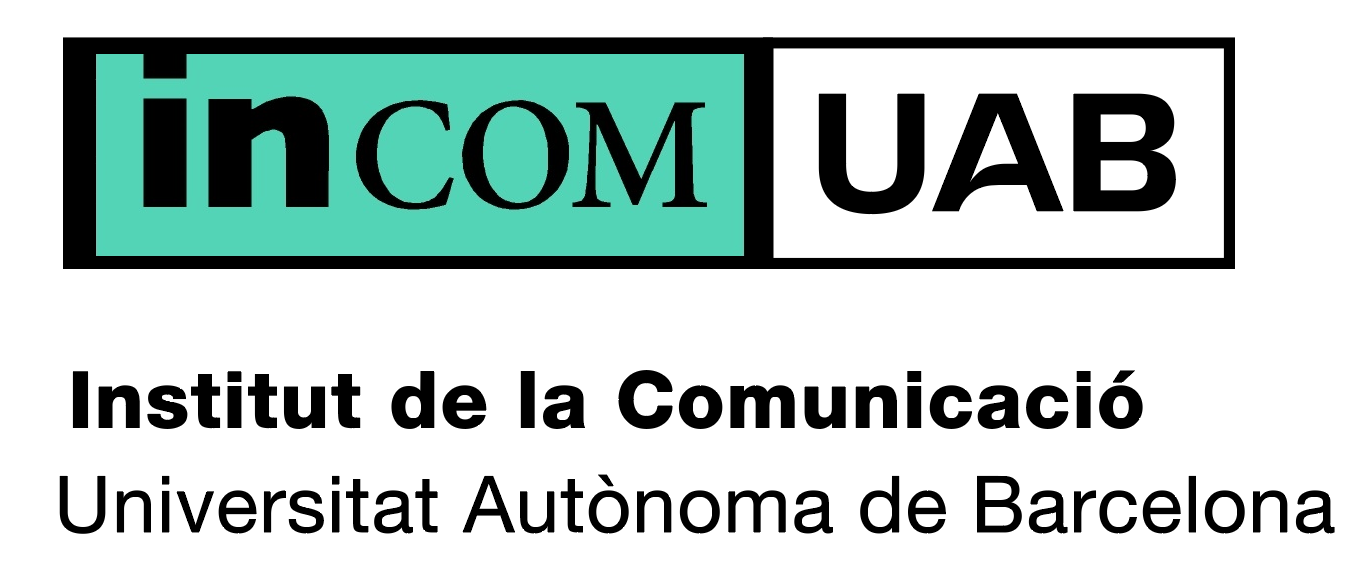Creada amb el nom Comunicació, Migració i Ciutadania (CMC InCom-UAB) al 2007, aquesta línia amplia la seva mirada -amb l’aprovació del Màster en Comunicació LGTBI+ al 2020- i tracta sobre la diversitat mès enllà del procés migratori.
Directora: Amparo Huertas Bailén
Aquesta publicació va ser un dels primers projectes: “Diásporas, migraciones, tecnologías de la comunicación e identidades transnacionales”, Denise Cogo, Mohammed ElHajji, Amparo Huertas (eds.) (2012)
Selecció de publicacions:
Jóvenes LGTBIQ+ ante la información de actualidad: hábitos de consumo, seguimiento de «influencers» y actitudes polarizadoras. Anàlisi, 72, 135–150. Carratalá, A., & Iturregui-Gallardo, G. (2025).
#IamNotAVirus – Transnational activism of chinese diaspora on social media during Covid-19. index.Comunicación, 14(2), 321–345. Cogo, Denise; Perez Neto, Luiz, & Huertas Bailén, Amparo (2024).
Sul Global: uma agenda política para pensar a comunicação?. MATRIZes, 18(1), 127-143. Peres-Neto, L. (2024)
‘Hair for Freedom’ Movement in Iran: Interreligious Dialogue in Social Media Activism? / Celina Navarro i Luiz Peres Neto (2023). Religions 14, no. 5: 602.
Interreligious dialogue in public service broadcasting : a case study in Catalonia (Spain) / Amparo Huertas Bailén (2020). Religions. Vol. 11 Núm. 441 (agost 2020)
This text addresses how the media deals with interreligious dialogue based on the case study of the Catalan public television stations. Our theoretical framework revolves around the concept of mediation, which is regarded as a communicative concept that emphasizes the socializing power of the mass media as well as its potential contribution to social cohesion.
Pluralismo religioso en la televisión pública : estudio del caso catalán / Amparo Huertas Bailén y José Luis Terrón Blanco (2020) Comunicación y diversidad. Selección de comunicaciones del VII Congreso Internacional de la Asociación Española de Investigación de la Comunicación (AE-IC), p. 271-280
Este texto reflexiona sobre los medios de comunicación como mediadores de los valores y el conocimiento de las creencias religiosas. El análisis se centra en el pluralismo y en el tratamiento del diálogo inter-religioso, e incluimos también la opción del ateísmo.
Migrantes que se autoproclaman autoridades discursivas : «¿Qué pasa en Venezuela?» / Amparo Huertas Bailén y Luiz Peres Neto. Revista CIDOB d’Afers Internacionals, núm. 124 (abril 2020), p. 147-169)
Las crisis políticas provocadas por gobiernos autoritarios favorecen la aparición de líderes de opinión (influencers) entre la población emigrada. Al respecto, este artículo aborda la comunicación transnacional vinculada a procesos migratorios.
Islam and mass media consumption in post-migration contexts among women from Northern Africa in Catalonia (Spain) / Amparo Huertas Bailén, Societies (2018), Vol. 8, Num. 91.
This paper explores the influence of religion in cultural hybridization processes linked to migratory experience, taking into account the study of mass media consumption. Our research focused on the analysis of Muslim women from northern Africa living in Catalonia (Spain) over a 5-year period. […]
Religión y consumo mediático de las mujeres musulmanas del norte de África con experiencia migratoria / Amparo Huertas Bailén y María Luna. Prisma social, Vol. Especial, Num. 2 (2017) , p. 83-103
Desde el área de la comunicación la mayor parte de las investigaciones se han centrado en el tratamiento mediático de la inmigración. En cambio, este artículo se aproxima a la población migrante en calidad de audiencia. […]
In the field of Communication Studies the majority of the research is focused on media contents about immigration. This article, however, approaches the immigrant population as audience. Our media consumption analysis is based on 10 in-depth interviews applied to a group of Muslim women, originating from Maghreb and with a period of residency in Catalonia of more than 5 years. […]
2017
Maghrebi women in Spain : family roles and media consumption / Amparo Huertas Bailén y Yolanda Martínez Suárez Observatorio (OBS*), Special Issue (2013) , p. 111-125
This article examines the process of adaptation of Maghrebi women in migratory contexts by analysing their media diet, placing a focus on women of Moroccan origin who reside in Spain. On the one hand, the cultural setting is considered as a symbolic space in which the foreign-origin population should feel interested and to which access should be facilitated; on the other hand, cultural identity is considered as something that is both flexible and dynamic. […]

